Posted on 1/22/2026
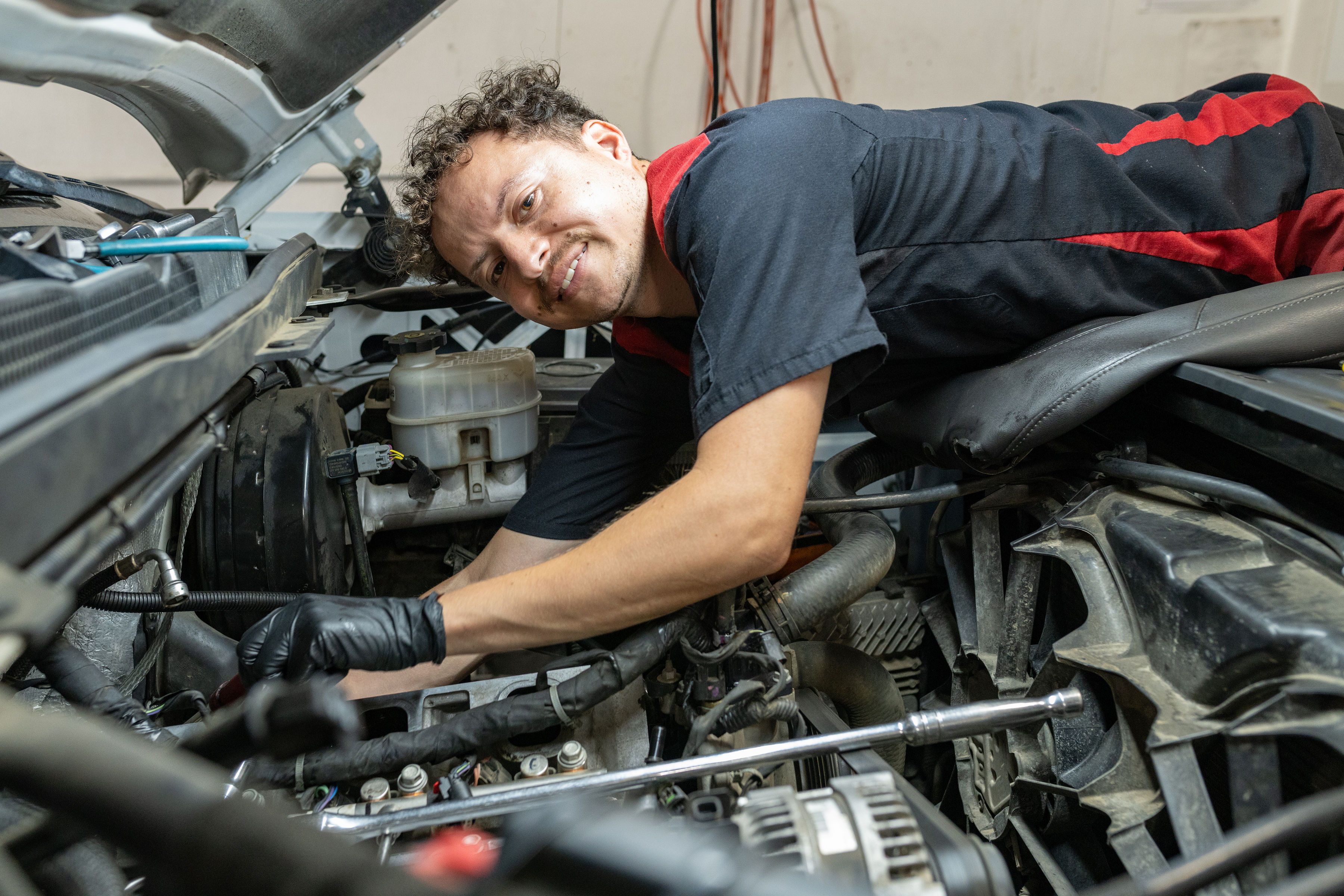
At Ryan’s Automotive, we specialize in diesel repair and diesel maintenance for Windsor, Healdsburg, and Santa Rosa drivers, including diesel fuel filter replacement every 30,000 miles to keep your truck running at peak performance. Diesel fuel filters are essential for protecting your engine. Over time, they trap dirt, debris, and water from diesel fuel. When a fuel filter becomes dirty or clogged, it can lead to serious problems such as: ❌ Loss of power and poor drivability ❌ Hard starting or engine hesitation ❌ Decreased fuel economy ❌ Damage to diesel fuel injectors ❌ In neglected cases, failure of the diesel injection pump Routine fuel filter service is one of the ... read more
Posted on 6/22/2023
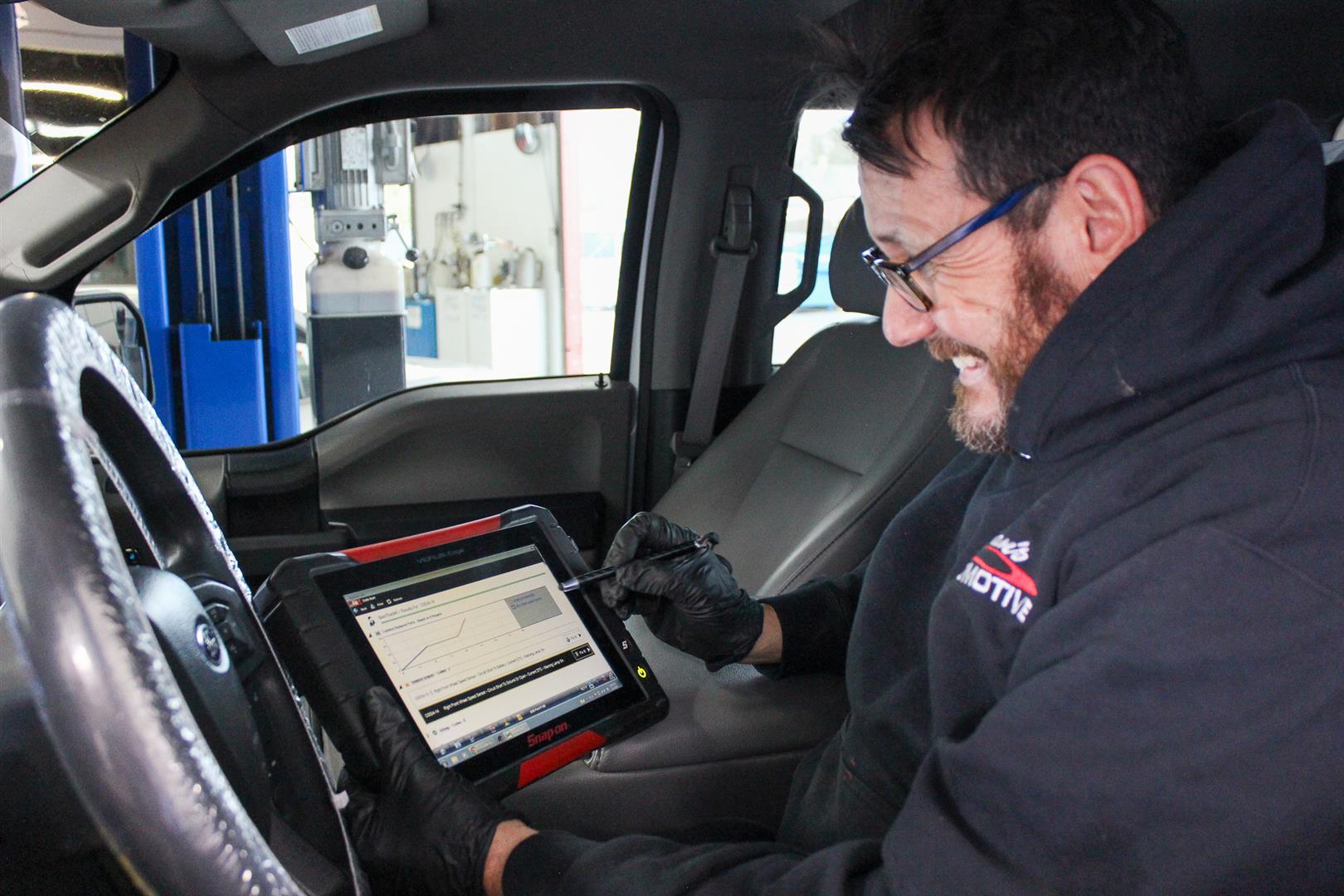
Why Is My Check Engine Light On? There are many reasons why your check engine light might be on. It's important to remember that the check engine light is a warning sign that something is wrong with your car. Ignoring the problem can lead to more serious problems down the road. So if your check engine light is on, don't wait to get it checked out. Here are some tips for getting your check engine light checked out: Be prepared to pay for a diagnostic. The technician will need to use a diagnostic tool to scan your car's computer and work through a series of tests to determine the cause of the problem. This diagnostic is $140 with Ryan’s Automotive and can go up to $200 at the local dealerships Be prepared to pay for the repair. Once the mechanic has determined the cause of the problem, we will need to repair it. The cost of the repair will vary depending on the severity of the problem. By following these tips, you can help to keep your car running ... read more
Posted on 6/9/2023
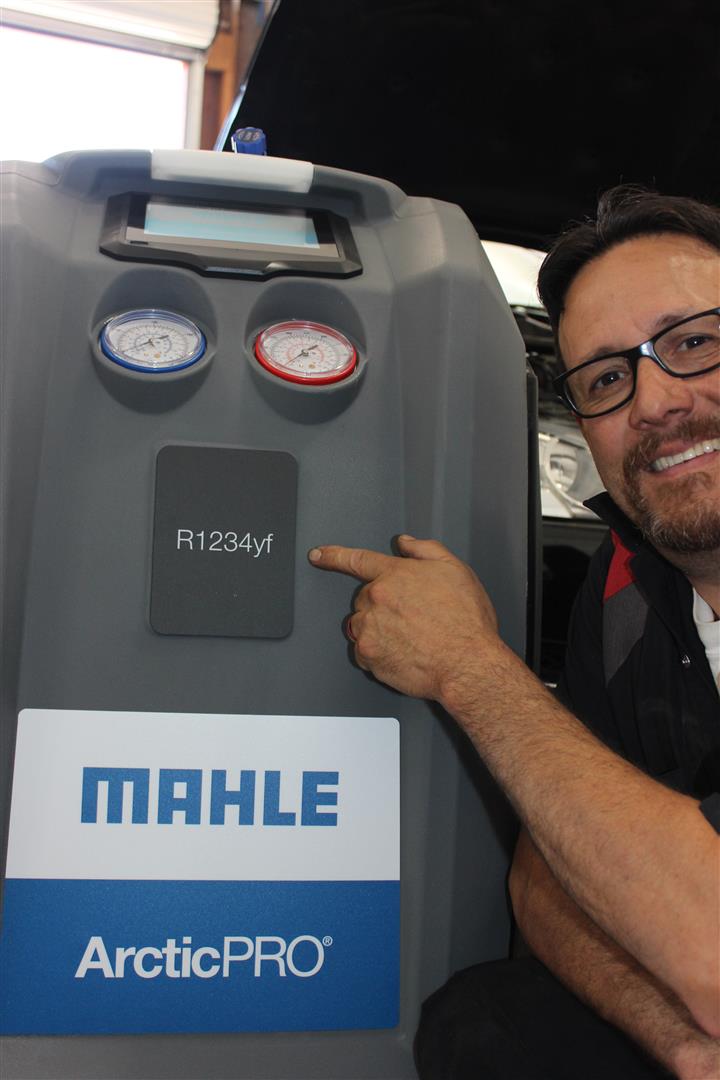
R1234yf is the newest refrigerant used in automotive air conditioning systems. It is a hydrofluoroolefin (HFO), which means that it is a type of greenhouse gas that has a lower global warming potential than other refrigerants, such as R134a. R1234yf was first introduced in 2011 and is now used in most new vehicles. There are a few reasons why R1234yf is being used instead of other refrigerants. First, it has a lower global warming potential, which means that it is less harmful to the environment. Second, it is more efficient than other refrigerants, which means that it can help to improve the fuel economy of your vehicle. Third, it is less flammable than other refrigerants, which makes it safer to use. If your vehicle uses R1234yf, it is important to have it serviced regularly by a qualified technician. This will help to ensure that your air conditioning system is working properly and that the refrigerant levels are correct. Here are some of the benefits of using R1234yf in your car ... read more
Posted on 12/21/2022
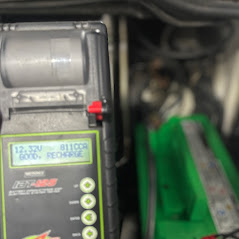
Why Won't My Car Start? As the seasons change and temperature drops, we get calls about vehicle not starting. There are lots of different reasons why your car may not start. The first thing to check is the car battery. Batteries work on electrical reactions. Those reactions send power to the terminal ends on a battery. When its cold outside those reactions slow and become weak. This can result in your vehicle to not start. Some of things you can do to winterize your battery. Best plan, is to keep a full charge and store your vehicle in a garage or carport. This is not always possible, so a battery blanket or a trickle charger also helps. Being in California we don't have to worry about his too many months out of the year. If you go out to start your car in early December, when the temperatures dip, and your car won't start. We are more than happy to test your battery and replace if necessary.
Posted on 12/1/2022
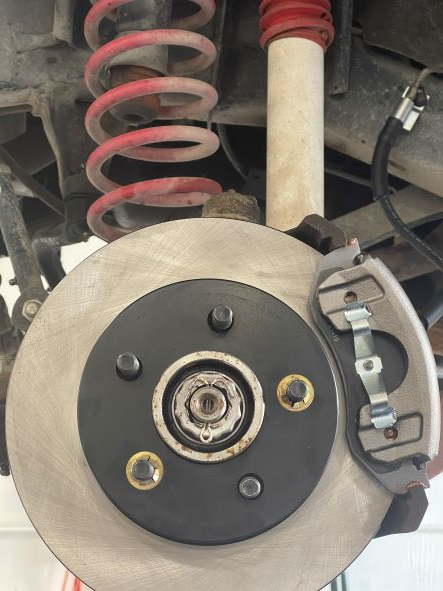
Why Is My Car Vibrating When I Brake? There are many different reasons why your car may vibrate or shake. One of the more common reasons, especially if you feel the vibration while braking, is a warped brake rotor. When applying the brake pedal, the brake pad pushes against the brake rotor. The friction is what causes the vehicle to stop. The rotor and pad must make even contact. Even the slightest abnormality can cause a serious reduction in how long it takes to come to a full stop. Uneven wear patterns or a warp of the rotor can cause a vibration or shaking when stopping. Often you'll feel the vibration in the steering wheel or at the brake pedal. You may ask, how does a rotor warp? There is so much heat and friction in the braking system. Overtime with constant heat and pressure as the rotor thins it can lose shape. If new brake pads seat against a worn rotor the sur ... read more
Posted on 10/12/2022
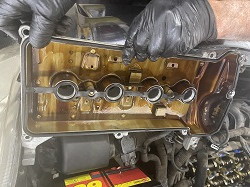
Why Do I Smell Burning Oil? What’s that smell? Do you smell burning oil coming from your engine? There are many reasons why your car might smell like burning oil. Usually it’s due to engine oil landing on something hot and burning off. This could be from a sloppy oil change or a variety of engine oil leaks. One of the more common reasons is a leaking valve cover gasket. The valve cover gasket loses its seal and engine oil leaks onto the exhaust manifold and burns. Smoke can then waft into the cabin. Is it safe to drive my vehicle with a leaking valve cover gasket? The short answer is No. Your vehicle is losing engine oil. If your car drives too long without engine oil it can do serious damage. If the leak is small and your vehicle has the proper amount of engine oil you can drive until you have the means to fix, but should be high priority. What caused the valve cover gasket to break? ... read more
Posted on 6/16/2022
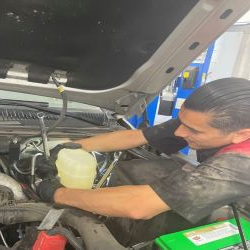
Why Does My Brake Pedal Go to the Floor? If your brake pedal is sinking to the floor most likely you have an issue with your brake fluid. The braking system on most modern vehicles works by a hydraulic system. A hydraulic brake system is filled with fluid. When you apply the brake pedal the fluid travels through both the brake master cylinder and slave cylinder forcing pistons to apply the brakes. 3 Reasons Why Your Brake Pedal May Be Going To The Floor 1. YOU HAVE AIR IN THE BRAKE LINES Remember, our brake system works under pressure and air doesn’t provide any resistance. So, if there are air pockets in the braking system it may cause your brake pedal to slowly sink to the floor. 2. YOU HAVE A BRAKE FLUID LEAK If the braking system works by compressing fluid and there isn’t enough fluid in the system, you will experience a spongy pedal or worst case a brake pedal that sinks to the floor. ... read more
Posted on 6/6/2022
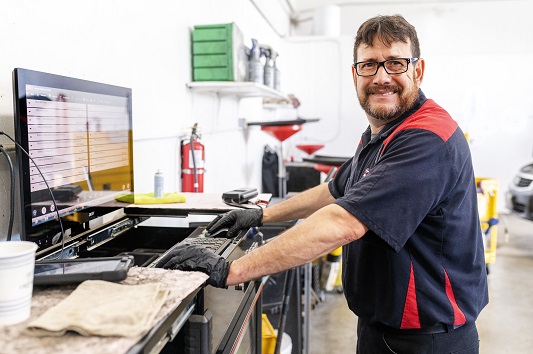
3 Signs You Vehicle Needs An Alignment! Our tires and suspension absorb bumps in the road. Hitting pot holes and other obstacles can cause our tires to be misaligned. An alignment assures the wheels are pointing straight and the tire at the proper angle. The measurements are very small and is not seen by the naked eye. Even small misalignments can have very noticeable effects while driving. 1. Steering wheel vibration. Does your steering wheel vibrate when your driving down the freeway? This is a common symptom of needing a wheel alignment. If you're experiencing this problem, slow down, and find a shop to fix sooner rather than later! 2. Pulling. Is your vehicle is pulling either right or left while driving? If you are unsure if your vehicle is pulling find a flat open space and test. If it is pulling left or right this is a sign you need a wheel alignment service. ... read more
Posted on 8/24/2021
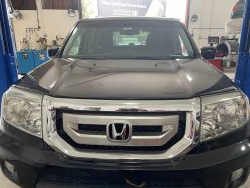
Car Headlight Polishing, Cleaning, Repair Have your headlights dimmed or fogged over the years? Over time, UV light from the sun can damage your car or truck headlight lens and cause them to fog and yellow. As headlights become hazy it’s not safe to drive at night, in bad weather, or the cloudy days of winter. According to the National Security Council 50% of traffic deaths happen at night, even though we do only 25% of our driving at night. If you have foggy headlights visit Ryan's Automotive. They're experts know how to restore headlights to factory specification. Restoring headlights can be far more less expensive then replacing and they are as good as new! Even if only one headlight is yellowing or cracking our experts recommend restoring both. The effect afterward will be equally bright headlights and a more safe overall. At Ryan's Automotive we restore headlights to factory specification ... read more
Posted on 8/10/2021
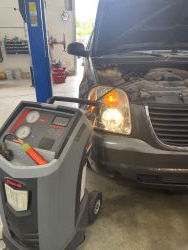
How Do I Fix My Car Air Conditioning from Blowing Hot Air? HELP! How Do I Fix my Car Air Conditioning from Blowing Hot Air? There's nothing worse than getting in your Vehicle on a hot day, turning on the AC, and getting blasted by hot air. You instantly get on Google and begin searching to find this post. Here are the 3 most common reasons why your Car Air Conditioner is Blowing Hot and how to fix. Low Refrigerant Is your Vehicle Blowing Warm Air? If your Car AC Is Not Cold it’s possible your vehicle is Low on Refrigerant. Since refrigerant is a gas finding a Refrigerant Leak can be tricky. Worn Compressor Is your Vehicle AC Making Noise or Blowing Hot Air? Like many parts on a vehicle over time the parts become worn and ultimately, fail. because the Compressor is failing. Electrical Issu ... read more